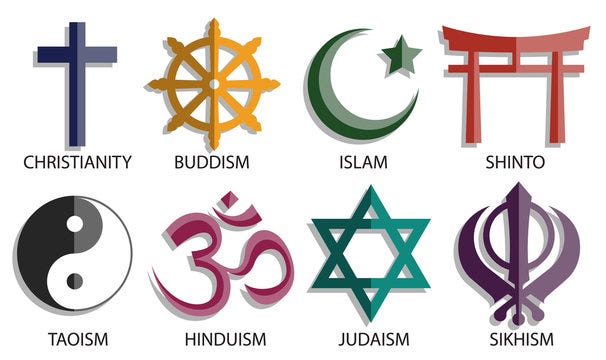It’s very unpleasant to be an irreligious kid in a religious family. Every week – if not more often – you have to remain silent in the presence of dogmatic nonsense. You can’t even get things off your chest during the Q&A session – most religions don’t have them, and most religious people don’t appreciate them. If you challenge your family members, your chances of getting a straight answer – or even a civil one – are pretty low.
At least that’s how things were for me when I was a teen-age atheist. My response, from age 15-19 or so, was to wage a one-man intellectual war on religion. I didn’t just object to religious claims that happened to come my way. I was on search-and-destroy mode, vainly trying to argue every crucifix-wearer onto the path of reason.
I haven’t changed my mind about the folly of religion. But I have learned a happy lesson since my teen-age days: At least in modern America, it’s easy for an adult to live a secular life. Yes, most people are nominally Christian, but their proselytizing era has been over for at least a century. I can’t remember the last time a religious person even broached the topic of religion with me, much less attempted to give me an unwanted sermon.
But this is just my personal experience, you say? Well, look at mainstream television or movies or music. They’re the masses’ primary form of entertainment, and their religious content is near-zero. Of course, religious t.v. shows do exist, but only in easily-avoided cultural ghettoes like the Christian Broadcasting Network. Early Christians tried to be the light of the world; modern Christians preach to the choir.
Here are two examples that nicely illustrate my point. If you drive past a nearby Catholic Church, its big roadside banner reads: “Inactive Catholics, re-discover your faith.” Talk about a soft-sell: “If you already agree with us, but don’t attend church, we’d love to see you here.”
Another example: If you wander the streets of NYC and look like me, some ultra-Orthodox Jewish teens will eventually approach you and ask: “Are you Jewish?” If you say no, they wave good-bye. If you want more details, here’s a true story about my encounter with the aforementioned ultra-Orthodox Jewish teens:
Teen: Sir, are you Jewish?
Me: I’m ethnically Jewish.
Teen: Ethically Jewish? Everyone is ethically Jewish.
Me: No, I said I’m ethnically Jewish.
Teen: Why do you say that?
Me: Because my father is Jewish.
Teen: [shakes my hand] Have a nice day.
(If you are completely baffled by this anecdote, remember that Jewish religious identity is matrilineal).
My point is simple: Life as a teen-age atheist led me to grossly exaggerate the lifetime burden religion was going to impose on me. At least in the modern U.S., once you leave home and build your own life, religion will probably leave you alone if you leave it alone. In fact, even if you want to crusade against religion, you’re going to have to make an effort to find people who don’t just run away to talk amongst themselves.
P.S. If you say “What about the pro-life movement?” or “What about intelligent design?,” I’m going to say “availability bias.” In fact, I’m tempted to give the same response if you say “Islamic terrorism,” though I admit that’s a tougher case.
The post appeared first on Econlib.





To say the obvious: Post Dobbs, many states have imposed tighter restrictions on abortions, and this movement is religiously motivated. I fail to see how your response of “availability bias” refutes the notion that pregnant women seeking abortions in such states oftentimes cannot easily overcome these hurdles. If I am not mistaken, elsewhere you’ve claimed you don’t follow the news much. If true, how best to classify your weak rebuttal? “News-blackout bias”?
It’s hard to take Caplan’s views on religion seriously after I read what he had to say about the discussion of the arguments for God in Huemer’s Knowledge, Reality, and Value. His opinions, in my view, revealed a deep dogmatism on par with that of young earth creationists. But what do I know? I’m just a silly Christian.